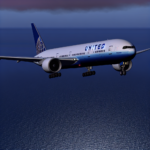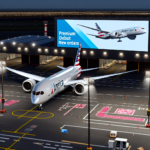ATLANTA- Delta Air Lines (DL) has recently introduced seven new seasonal routes, exclusively on Saturdays, from Orlando International Airport (MCO). These routes will serve cities including Birmingham (BHM), Omaha (OMA), and Raleigh-Durham (RDU).
This initiative reflects a strategic experiment for Delta at one of the country’s busiest and most rapidly developing airports.
Starting December 20, 2025, the airline aims to connect Orlando to underserved markets like Cincinnati (CVG), Columbus (CMH), Kansas City (MCI), and Milwaukee (MKE), with operations continuing until April 11, 2026.
Even though the service frequency is limited, it raises speculations regarding whether Orlando is becoming a strategic focus for Delta.
Delta’s choice to implement point-to-point flights from Orlando marks a departure from its traditional hub-and-spoke operations centered around Atlanta (ATL), Minneapolis-St. Paul (MSP), Salt Lake City (SLC), and Detroit (DTW).
These new routes signify a calculated investment in Orlando’s robust year-round demand and expanding market presence.
Orlando International Airport (MCO) facilitated the travel of over 58 million passengers in 2023 and continues to enhance its infrastructure with new terminals and lounges.
This development positions MCO as an attractive origin point as well as a destination, particularly for leisure travel.
The chosen destinations—spanning from Milwaukee to Raleigh-Durham—represent solid market potential, with limited direct competition and a strong Delta customer base, making them ideal for this trial.
By opting for Saturday-only flights, Delta reduces fleet disruption during weekdays while maximizing aircraft utilization on a day typically characterized by lower business travel demand.
These routes likely involve quick turnarounds by regional partners, allowing Delta to explore new markets without establishing permanent bases or deploying extensive resources, as noted by Live and Let’s Fly.

Current Strategic Approach
Delta has experience with non-hub route tests. In 2018, it initiated nonstop service from Indianapolis (IND) to Paris (CDG) and previously connected Pittsburgh (PIT) to Paris via a Boeing 757.
While these noteworthy routes were intended to capture international demand and local traffic, they were ultimately discontinued during the pandemic and have yet to be reinstated.
These initiatives showcase Delta’s readiness to innovate when the calculations align, even if it opts to withdraw rapidly when expectations are unmet.
Delta’s strategy in Orlando balances flexibility with risk, exploring new demand sources with minimal exposure.
The Orlando Fit
Airlines such as Southwest (WN), JetBlue (B6), and Frontier (F9) have established significant operations at MCO, drawn by its consistent leisure passenger volume and infrastructure capabilities.
Orlando stands out not only as a seasonal hotspot but also as a venue for year-round conventions, events, and family travel, making it remarkably stable among U.S. leisure markets.
Currently, Delta represents about 12% of Orlando’s air traffic as of late 2024. Competing against low-cost carriers (LCCs) and ultra low-cost carriers (ULCCs) like Spirit and Frontier, Delta faces the challenge of maintaining full flights while ensuring financial viability in a price-sensitive context.
Though there has been no official declaration, Delta’s behavior resembles a prototype focus city strategy—targeting specific routes, employing smart scheduling, and strategically selecting markets without formally announcing a hub.
The airline may also be assessing Orlando as a potential model for future similar operations in other cities such as Tampa (TPA), San Diego (SAN), or Nashville (BNA).
Competitive Environment
What distinguishes Orlando from other focus city ventures, such as American Airlines’ withdrawal from Austin (AUS), is its inherent stability and balance of entry and exit traffic.
In contrast to Austin’s fleeting experience, Orlando presents reliable passenger numbers with low seasonal variability, allowing Delta to mitigate risks associated with network expansion.
Furthermore, MCO serves as a testing platform for direct competition against LCCs on high-demand and underserved routes.
Despite potentially high load factors, profitability could remain constrained due to fare reductions. Achieving success within this model will largely hinge on Delta’s ability to secure sustainable profit margins despite lower average fares.
The restriction of this launch to Saturdays underscores Delta’s prudent optimism, utilizing otherwise unoccupied aircraft to explore market demand with minimal risk—an ideal approach for a market marked by competitiveness and value.
Conclusion
The introduction of seven new routes by Delta from Orlando may appear modest, but the strategic implications are significant.
Regardless of whether Delta officially designates Orlando as a focus city, the airline is already functioning in that capacity by capitalizing on high leisure demand, optimizing asset efficiency, and engaging in strategic market testing.
This could signify the onset of a broader trend regarding how legacy carriers might approach non-hub airports. If the Orlando strategy proves effective, expect similar tactics to be adopted in other leisure-centric and well-equipped cities.
At present, Delta’s actions may be small in scope but carry substantial implications—testing the waters for an innovative network strategy that intertwines traditional strengths with agile, opportunistic deployment.
Stay connected with us for updates. Additionally, follow us on social media for the latest aviation news.
Join our Telegram Group for the Latest Aviation Updates and follow us on Google News.
Based on an article from aviationa2z.com: https://aviationa2z.com/index.php/2025/06/02/delta-likely-plans-new-hub-in-orlando/?utm_source=rss&utm_medium=rss&utm_campaign=delta-likely-plans-new-hub-in-orlando



